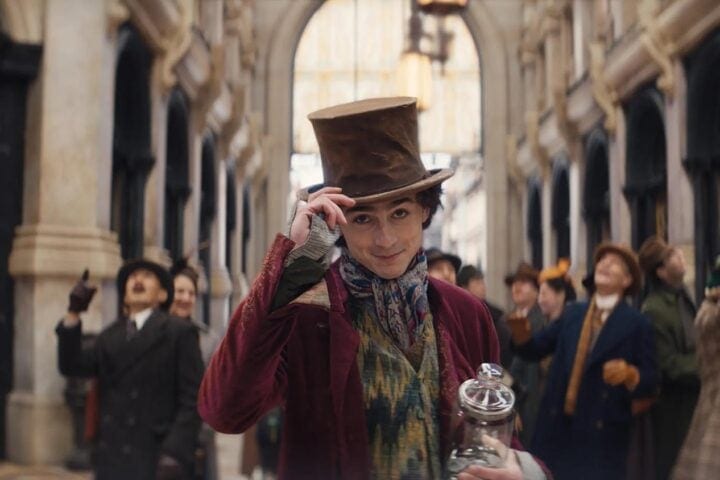The discovery of Richard III’s remains beneath a car park in Leicester, England, made for great headlines in 2012, but the story of amateur historian Philippa Langley, who initiated the search, proves cinematically lackluster in Stephen Frears’s The Lost King. Screenwriters Steve Coogan and Jeff Pope, reuniting with Frears 10 years on from the enjoyable Philomena, show excessive deference to their heroine and her story, forsaking what could have been a compelling character study in favor of a dry chronicle of real-life events. Even among Frears’s late-career outpouring of middlebrow trifles, this registers as a disappointment.
The film portrays Philippa (Sally Hawkins) as both a meticulous researcher and an intuitive who, in the words of her lone female ally on the city council, follows her feelings. After attending a production of Shakespeare’s Richard III, she raids her local bookshop and joins the Richard III Society, a ragtag fan club that meets in a bar (and whose diverse members, unfortunately, get too little screen time). Philippa and her new friends are staunch pro-Richard advocates bent on restoring his reputation by proving that he was a legitimate King, not a usurper who murdered his nephews (as written in Tudor history and adapted into the Bard’s immortal play).
Although the connection goes unspoken, Philippa’s affection for King Richard partially stems from her experience living with chronic fatigue syndrome, a condition that’s belittled and misunderstood by her friends and colleagues. Richard III likely had scoliosis but is commonly thought of as a hunchback; Philippa, with a debilitating affliction of her own, resents the equation of disability with villainy. When she begins to have visions of Richard (in the guise of the actor, played by Harry Lloyd, she recently saw on stage), she sees him as dignified and regal, a far cry from the Shakespearian version. And, indeed, when Philippa sets out to locate and unearth his remains, she explicitly intends to amend the historical record.
After her proposal to search for Richard’s remains is roundly rejected, she finally gets a meeting with archaeologist Richard Buckley (Mark Addy), who agrees to take on the project when he’s suddenly in need of a backer. Like many others (including some who will eventually try to steal her credit), Buckley is simply humoring Philippa, initially using her endeavor as a pretext to locate the grounds of Greyfriars Church with no expectation of finding Richard. Once the dig gets going, it isn’t long before Richard’s bones are found, and the media swoops in on cue.
As fascinating as much of this would be to read about in detail, what it amounts to on screen is a lot of scenes depicting library research and pitch meetings. Philippa’s relationship with her doting ex-husband, John (a wryly restrained Coogan), is meant to provide an emotional through line, but that scenario isn’t sufficiently developed. Elsewhere, Philippa’s stand-offs with a snooty acquaintance (Robert Jack), a crusty professor (Julian Firth) whose lecture she interrupts, and a duplicitous university administrator (Lee Ingleby) are staged by Frears with bathetic earnestness, practically begging for the audience’s applause.
One may be forgiven for finding Philippa a troubling character. Her friends think she needs help and her ex-husband suggests that she may be experiencing a psychotic break. After all, she’s taken an extended leave from work, ensconced herself in Richard-mania, and, at one point, one of her sons, Raife (Benjamin Scanlan), catches her sitting alone on a bench, talking to the imaginary Richard as if she were James Stewart in Harvey. Does the fact that Philippa turns out to be right about almost everything—including the “R” for Reserved in the car park that she believes indicates “Richard”—vindicate her erratic behavior?
There’s more than a tinge of sexism in the patronizing attitudes of those in Philippa’s midst, but the concern that John expresses, before then reaffirming his support, is reasonable. Perhaps because Langley herself is an executive producer on the film, the script tries to portray her as devoted rather than madly obsessive, and Hawkins, in a performance devoid of her natural charisma, seems unsure of how to play the role as a result. There’s inspiration to be found in Langley’s perseverance and its eventual payoff, including the accolades and the recognition that she’s fought for. But The Lost King, a shabby account of the story behind the story, muddles its themes and only superficially conveys the importance of the historical insights it contains.
Since 2001, we've brought you uncompromising, candid takes on the world of film, music, television, video games, theater, and more. Independently owned and operated publications like Slant have been hit hard in recent years, but we’re committed to keeping our content free and accessible—meaning no paywalls or fees.
If you like what we do, please consider subscribing to our Patreon or making a donation.





